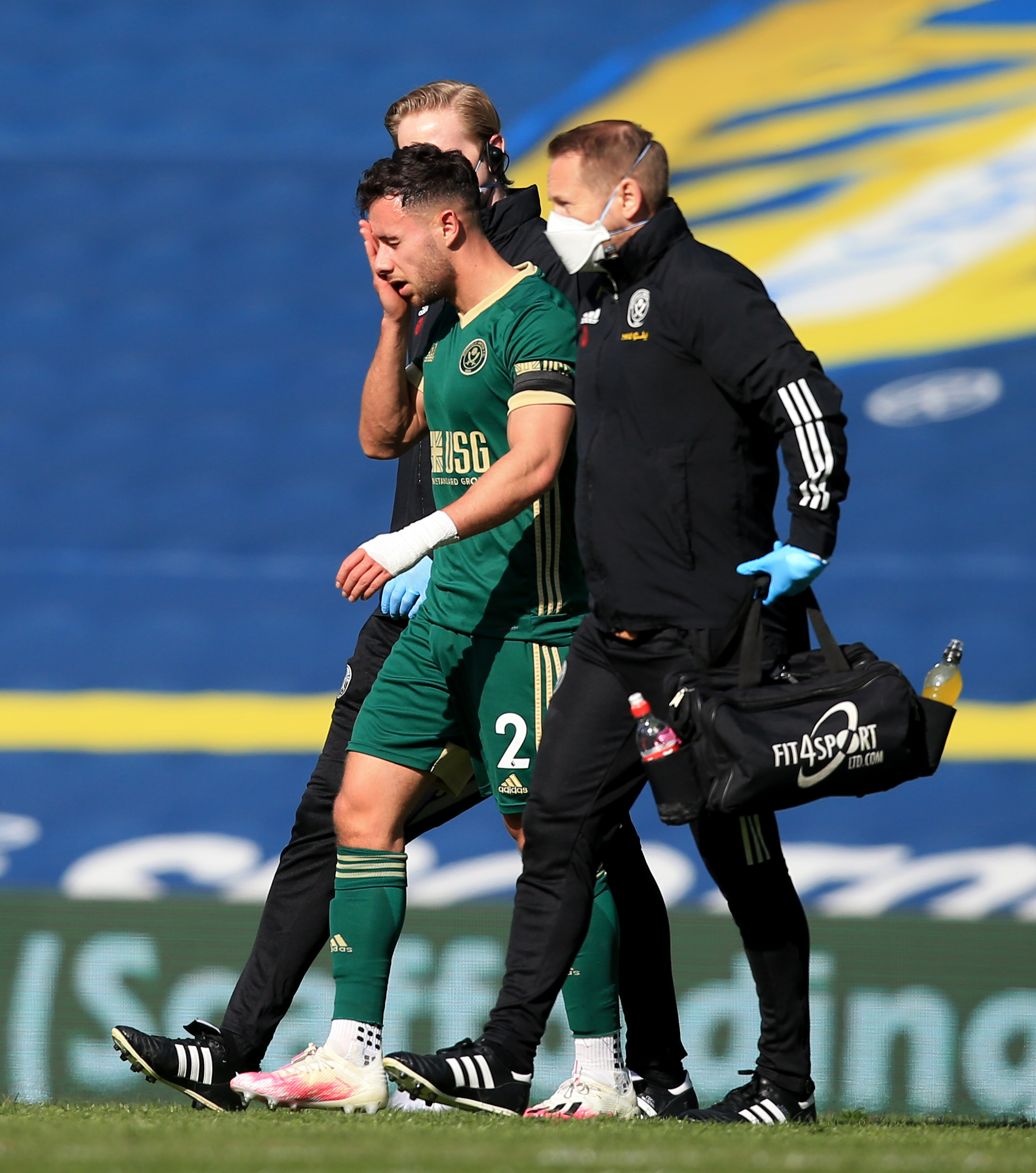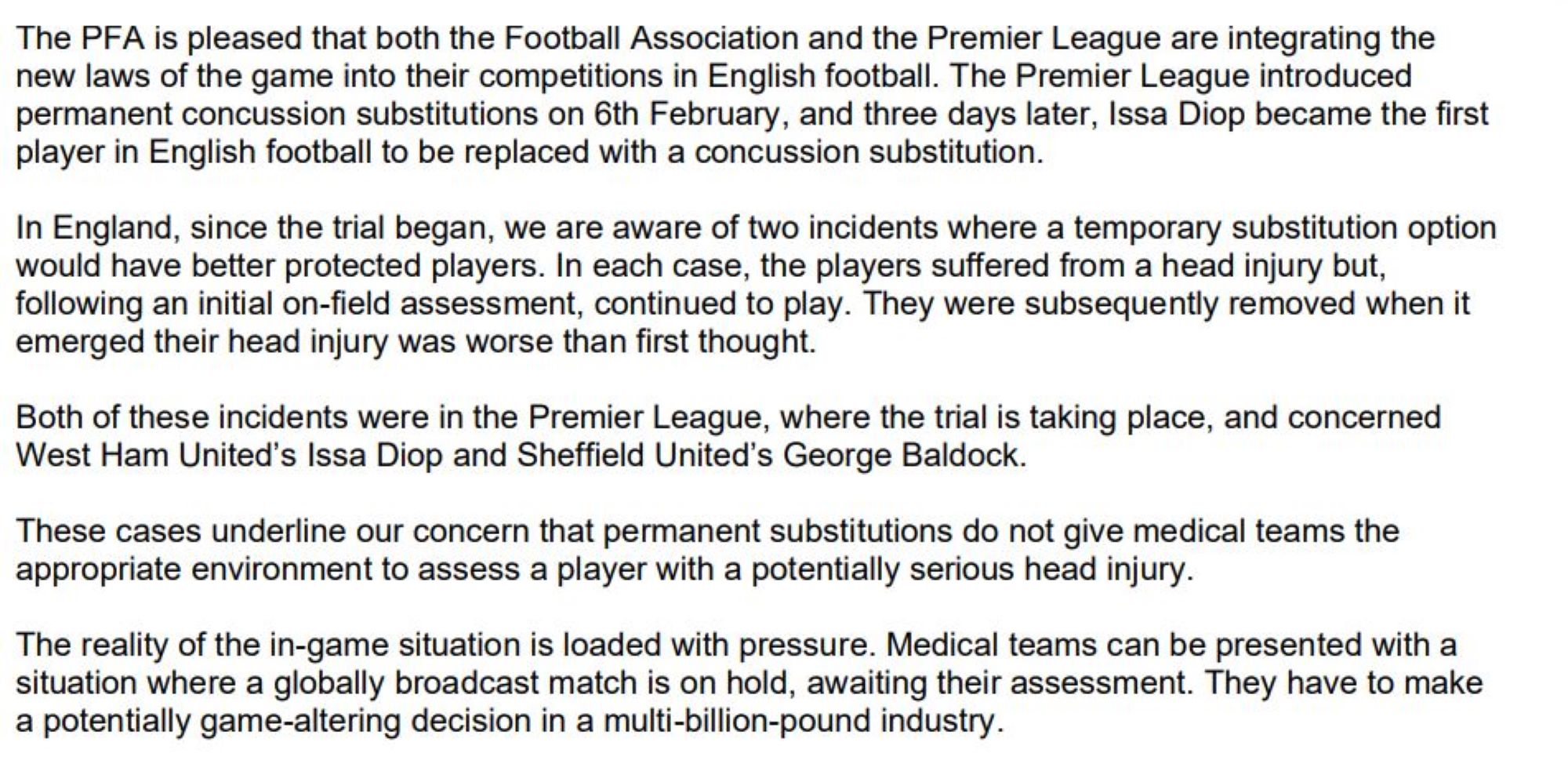PFA: New concussion laws have ‘jeopardised player health’ in some instances

The new concussion laws being trialled in England have “jeopardised player health” in some instances and have created a system which is loaded with pressure on medical staff, according to the Professional Footballers’ Association.
It has joined forces with world players’ union FIFPRO to write to the game’s law-making body the International Football Association Board (IFAB), calling for the scope of the trials to be extended to include temporary concussion substitutes from June onwards, as well as the existing permanent sub option.
Permanent concussion substitutions were introduced in the Premier League from February 6 and are also being trialled in the FA Cup, the Women’s Super League, the Women’s Championship and the Women’s FA Cup.
The PFA and @FIFPro have written an open letter to @TheIFAB calling for temporary concussion substitutions to be trialled.— Professional Footballers' Association (@PFA) April 15, 2021
The letter highlights the cases of West Ham’s Issa Diop and Sheffield United’s George Baldock, where PFA and FIFPRO say the temporary sub option “would have better protected both players”.
“These cases underline our concern that permanent substitutions do not give medical teams the appropriate environment to assess a player with a potentially serious head injury,” the letter stated.
“The reality of the in-game situation is loaded with pressure. Medical teams can be presented with a situation where a globally broadcast match is on hold, awaiting their assessment. They have to make a potentially game-altering decision in a multi-billion-pound industry.
“Since the beginning of IFAB’s permanent concussion substitute trial, we have seen several incidents where the new laws of the game have fallen short of their objective and jeopardised player health and safety.
Get FourFourTwo Newsletter
The best features, fun and footballing quizzes, straight to your inbox every week.
“We write to ask for the existing trial to be extended in order to test in parallel temporary concussion substitutions as soon as possible.”

The letter references a FIFPRO poll which found that 83 per cent of 96 medics surveyed in the English, Belgian and French top flights felt temporary concussion substitutes should form part of the future protocol.
Professor Willie Stewart, one of the UK’s leading brain injury experts, described football’s concussion protocols as “a shambles” when he addressed a Digital, Culture, Media and Sport committee hearing last month.
Prof Stewart led the FIELD Study at the University of Glasgow, which found in 2019 that professional footballers were three-and-a-half times more likely to die of neurodegenerative diseases than age-matched members of the general population.
Since then a great deal of focus has been placed on ways to better protect players from concussion, and also the sub-concussive blows caused by heading, amid concerns of a link between head impacts and long-term brain health.
Guidelines on heading are set to be introduced for the professional and adult grassroots game for the start of next season, the Premier League said last month.
The FA has defended the permanent concussion substitution model in the past, arguing it fits best with its ‘If In Doubt, Sit Them Out’ approach to head injuries.
The governing body’s head of medicine, Dr Charlotte Cowie, said last December that the FA felt “duty-bound” to trial permanent concussion substitutes and pointed to the 15 per cent of “false negatives” found in World Rugby data on temporary substitutes, where players came back on after a longer assessment but were later diagnosed with concussion.
The IFAB is understood to be reviewing the contents of the letter before issuing a response.
